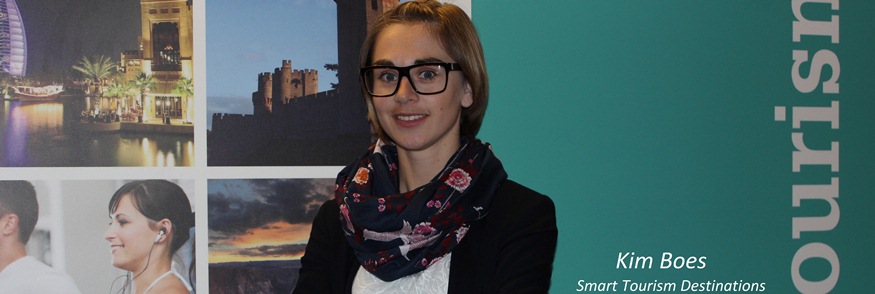Kim Boes is a PhD Researcher at the eTourism Lab at Bournemouth University. Her research project, supervised by Professor Dimitrios Buhalis and Dr. Alessandro Inversini aims to explore how smartness can improve competitiveness in the context of tourism destinations.
The beginning of the 21st century had to embrace some dramatic changes in economies and societies, which also affected tourism destinations greatly. The increase of globalisation-driven competitiveness, the growth in population, the shift in working places, and the innovation in technologies are putting pressure on tourism destinations. Gradually, knowledge and innovation driven economies are enhancing creativity and efficiency which is fostered by technologies such as Cloud Computing and the Internet of Things. This development triggered a ‘new’ concept in the public, private and academic sector called Smart Cities. Smart Cities strategically introduce ICTs within an urban area to incorporate urban processes in contemplation of enhancing the competitiveness of the city while simultaneously increasing the standard of living.
The Smart City concept does not stand on its own and covers a variety of industries, including the tourism industry. To date research in the field of Smart Tourism Destinations is elusive, where researchers primarily focused on the importance of ICTs. The usage of ICTs has become critical in tourism destinations, where the connected, better informed, and engaged tourist interacts dynamically with the tourism industry to co-create their tourism products. And also interconnecting tourism organisations provides the tourist with real-time and personal services, which simultaneously delivers data for the optimisation of strategic management. Still, the implementation of ICT in urban areas and tourism destinations is not a novel thought and arguing that the integration of technology within the tourism destination creates a Smart Tourism Destinations may not be sufficient enough to explain the notion of smartness. Therefore, also theories of competitiveness are of utmost importance for the development of smartness in cities and tourism destinations
With the increase of competition among tourism destinations, it is of significant importance that tourism destinations focus on distinguishing novel competitive advantage. To date, literature concentrating on destination competitiveness has mainly concentrated on single aspects such as marketing, destination image, pricing, and only a few scholars have developed comprehensive frameworks. Tourism destinations are known to be amalgams of touristic products and services and they are perceived as complex systems which are difficult to manage. Over the last two decades more information has become available on interdisciplinary integration, structural innovation, partnerships, and collaboration in order to deal with the challenges tourism destinations face . These concepts in combination with the integration of intelligent technology are perceived as the cornerstones of smartness. Still, greater attention is required to their implementation in tourism destinations and in how the notion of smartness is affecting competitiveness in the tourism destination context.
This doctoral study explores how the notion of smartness can improve competitiveness in the context of tourism destinations. It aims to analyse the fundamental constructs of a Smart Tourism Destination to take full advantage of ICT infrastructures and technological applications in order to supply co-creation of value and experiences for travellers and competitiveness and profit margin for destinations. Theoretical contribution in terms of developing a theoretical framework on smartness in tourism destinations and providing managerial implications for the optimisation of competitiveness for tourism destination stakeholders will be provided.
